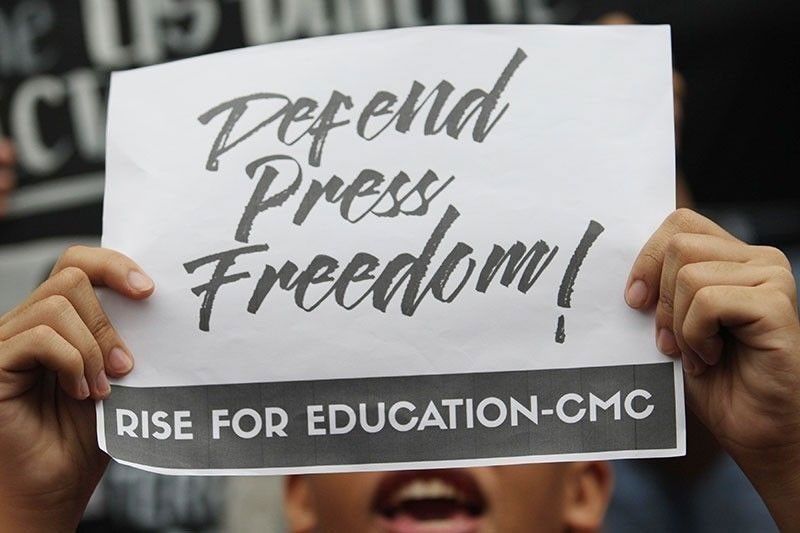Philippines drops further in World Press Freedom Index

MANILA, Philippines — With a global score of 45.64, the Philippines dropped two notches to 138 out of 180 countries in the 2021 World Press Freedom Index drawn up by Paris-based media watchdog Reporters Without Borders (RSF).
In a statement, RSF cited the Duterte administration’s “grotesque judicial harassment campaign” against news website Rappler and its chief Maria Ressa as well as Congress’ denial last year of a fresh franchise for TV giant ABS-CBN.
“The persecution of the media has been accompanied by online harassment campaigns orchestrated by pro-Duterte troll armies, which also launched cyber-attacks on alternative news websites and the site of the National Union of Journalists of the Philippines, in order to block them,” RSF said.
“Red-tagging also returned in force in 2020. This is a typically Philippine practice under which dissident individuals or groups, including journalists and media outlets, are identified to the police and paramilitaries as legitimate targets for arbitrary arrest or, worse still, summary execution,” according to RSF.
In Southeast Asia, the Philippines fared better than Myanmar (140th), Cambodia (144th), Brunei (154th), Singapore (160th), Laos (172nd) and Vietnam (175th) while Timor-Leste (71st), Indonesia (113th) and Malaysia (119th) ranked higher.
Freedom blocked
A total of 73 countries “totally blocked or seriously impeded” journalism, while it was “constrained” in 59 others, and many governments used the pandemic to worsen repression, according to an AP story based on the RSF annual report.
The Middle East and North Africa continue to be the most repressive for journalists, the report found, highlighting the worsening situation in Iran, Saudi Arabia, Egypt and Syria over the past year.
The 2021 World Press Freedom Index was topped by Norway for the fifth consecutive year, followed by Finland, Sweden, Denmark and Costa Rica. Eritrea was at the bottom along with North Korea, Turkmenistan, China and Djibouti.
RSF said the global level of media freedom remained largely stable overall for the past year, but noted that the figures had deteriorated by 12 percent since the ranking was first launched in 2013.
Part of the problem is falling trust in journalists, fueled by political polarization and online misinformation.
The World Press Freedom Index is based on questionnaires sent to experts around the world, combined with data on abuse and acts of violence against journalists to form a picture that includes pluralism, media independence, self-censorship and other factors.
- Latest
- Trending
































